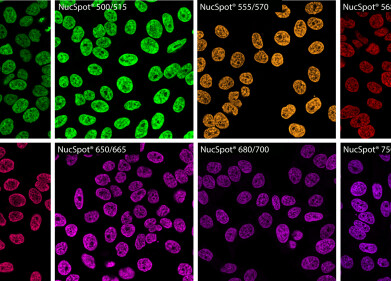-
 Those that are more prone to stress due to a gene abnormality are more likely to suffer heart problems, says new study
Those that are more prone to stress due to a gene abnormality are more likely to suffer heart problems, says new study
Microscopy & Microtechniques
Stress gene 'increases chance of heart attacks'
Dec 19 2013
A gene that can make people particularly sensitive to stress may also heighten individuals' chances of developing heart disease or suffering from a heart attack. A new study has found that the genetic trait is responsible for a 38 per cent increase in the chance of death in those with heart disease or a heart attack.
Scientists at Duke Medicine have found a biological trigger that could mean people are more predisposed to developing cardiovascular disease and death caused by heart problems. The study also suggests that the number of deaths and level of disability that occur due to heart attacks among those that have this gene could be lessened through modification of behaviour alongside drug therapy.
The study, published in the journal 'Plos One', builds upon previous research into the effects that a single nucleotide polymorphism (SNP) - when one letter of the genetic code is changed out for another, ultimately changing the function of the gene - upon a person's sensitivity to stress. The SNP that researchers looked at creates a serotonin receptor, which then triggers a hyperactive stress response.
It was found that men that had this SNP had double the normal amount or cortisol in their blood when they were exposed to stress, when compared to those men that did not have the altered gene.Cortisol is produced by the adrenal gland and is known as the 'stress hormone'. It helps to support the biological response to negative emotions that are brought on by stressful situations.
Lead author of the study, Dr Beverly Brummett, associate professor of Psychiatry and Behavioural Sciences at Duke, said: "It is known that cortisol has effects on the body's metabolism, on inflammation and various other biological functions, that could play a role in increasing the risk of cardiovascular disease. It has been shown that high cortisol levels are predictive of increased heart disease risk. So we wanted to examine this more closely."
A genetic analyses of 6.100 white participants - two-thirds of whom were male - found that 13 per cent had the gene that created a more severe reaction to stress. They were also found to have the highest rate of heart attacks and deaths over a six-year period following the initial examination.
Digital Edition
Lab Asia 31.6 Dec 2024
December 2024
Chromatography Articles - Sustainable chromatography: Embracing software for greener methods Mass Spectrometry & Spectroscopy Articles - Solving industry challenges for phosphorus containi...
View all digital editions
Events
Jan 22 2025 Tokyo, Japan
Jan 22 2025 Birmingham, UK
Jan 25 2025 San Diego, CA, USA
Jan 27 2025 Dubai, UAE
Jan 29 2025 Tokyo, Japan


















